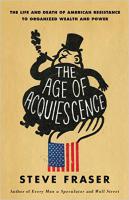
Charles Post assesses Neil Davidson’s posthumous book on neoliberalism, which makes a key contribution to the Marxist analysis of contemporary capitalism.
Charles Post teaches sociology at the Borough of Manhattan Community College-CUNY, is active in the faculty union at the City University of New York, and is a member of the NYC Labor Branch of Democratic Socialists of America.

Charles Post assesses Neil Davidson’s posthumous book on neoliberalism, which makes a key contribution to the Marxist analysis of contemporary capitalism.

Trump’s attempts to retain office despite losing the election failed for a simple reason: the complete absence of any interest among leading capitalists or state bureaucrats to eradicate or even weaken the Constitutional order in order to extend Trump’s presidency.

Ashley Smith and Charles Post respond to criticisms of their article “Facing Reality: The Socialist Left, the Sanders Campaign and Our Future.”

A little over a month ago, many on the new socialist left expected Bernie Sanders to win the Democratic Party nomination, defeat Donald Trump in the general election, and enact a program of social democratic reform as President of the . . .

Steve Fraser, The Age of Acquiescence: The Life and Death of American Resistance to Organized Wealth and Power (New York: Little, Brown and Company, 2015)
All of us on the left are all too familiar with the capitalist offensive of the past forty years. Under the banner of “neo-liberalism” capital has rolled back almost every gain working people across the world have made since the 1930s. All sorts of public industries, services and institutions have been privatized, social welfare programs that protected workers from the worst insecurities of the labor-market have been rolled back or simply abolished and unions and working class political parties that had traditionally organized and represented working people have been severely weakened.
THE ISSUE OF growing inequalities of income and wealth in the advanced capitalist world over the past four decades has been the subject of both social scientific research and political struggle. On the one hand, there is an extensive literature that amply documents the growth of inequality globally since the mid-1970s.
Teachers and teacher unions have been under neoliberal attack since the Carnegie Foundation’s 1983 Nation At Risk. However, since the appointment of Arne Duncan as Obama’s Secretary of Education they have been on the sharp-end of the neoliberal attack on working people. Teachers are routinely demonized as ineffective, privileged public employees who are virtually unaccountable.
Since the 1930s, most of the international left has defined their "socialism" not as the uncompromising defense of working class self-organization and self-activity, but as the uncritical support of one or another regime that claimed to be "socialist." Whether they idealized the Soviet Union, China, Cuba, Albania, or North Korea, most socialists have placed the defense of their particular "socialist fatherland" above the needs of working people at home and abroad.
In January 2011, members of the Participatory and Democratic Socialism Movement proposed that the Cuban Communist Party adopt its "Proposals for the Advance of Socialism in Cuba." ("Socialism and the 'Citizens' Demand for Another Cuba," Pedro Campos, Havana Times, June 24, 2012)* These socialist critics of the Cuban regime offered a program of radical democratic proposals including full freedom of speech and press, freedom of association (including partie
The anti-capitalist left in the United States and around the world faces a paradox. A mere five years ago, the world capitalist economy entered a new long period of falling profits, stagnant accumulation, and growing long-term un (and under-) employment. The 2007-8 financial crisis threatened a wave of bankruptcies across the capitalist world that seemed to herald a collapse of major sectors of industry and finance.